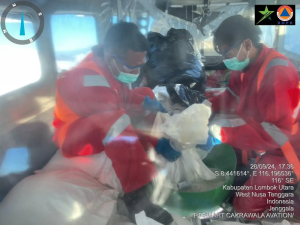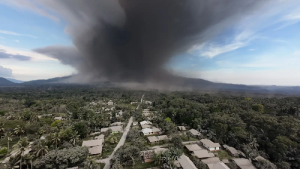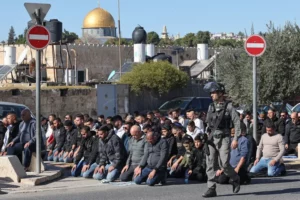Jakarta, MINA – The Director for Human Rights and Humanity of the Indonesian Ministry of Foreign Affairs Achsanul Habib hinted that there was involvement of a trafficking syndicate in the recent wave of Rohingya refugees arriving in Indonesia.
Habib explained that the syndicate’s role was to arrange for the Rohingya refugees to leave the refuge in Cox’s Bazaar, Bangladesh and sail to various countries in Southeast Asia, especially Indonesia.
“This is regulated by a syndicate and Indonesia is a transit country,” said Habib in Jakarta on Thursday.
He said secondary displacement occurs when refugees or asylum seekers move from the country where they first arrived to seek protection or permanent settlement elsewhere.
Also Read: Last Batch of Indonesian Hajj Pilgrims Depart from Madinah
In its efforts to reach transit countries like Indonesia, the Ministry of Foreign Affairs’ findings show that the movement of Rohingya refugees is known to many parties.
“Those who know about the departure send the coordinates of the boats on which the refugees are traveling to many parties, such as non-governmental organizations (NGOs), international institutions and embassies of foreign countries. This is done especially if they are in an emergency situation, running out of logistics and fuel while on the high seas,” he said.
According to him, the existence of ship coordinates based on GPS (global positioning system) data gave rise to an indication that the arrival of Rohingya refugees was no longer purely due to persecution, but instead became victims of criminal acts of trafficking in persons.
Habib said that what needs to be considered is the cooperation of regional and surrounding countries as well as coordination in rescuing refugees who are adrift on the high seas.
Also Read: Fourth Day of Weather Modification Operations: BNPB Disburses 16 Tons of Seeding Material
Therefore, Habib emphasized increasing the capacity of countries in the region to prevent smuggling networks from trapping refugees into their syndicates, which end up being money and certain payments. (T/RE1)
Mi’raj News Agency (MINA)
Also Read: Dozens of Volunteers Attend Rumah Zakat’s Basic Training in Bogor





























 Mina Indonesia
Mina Indonesia Mina Arabic
Mina Arabic